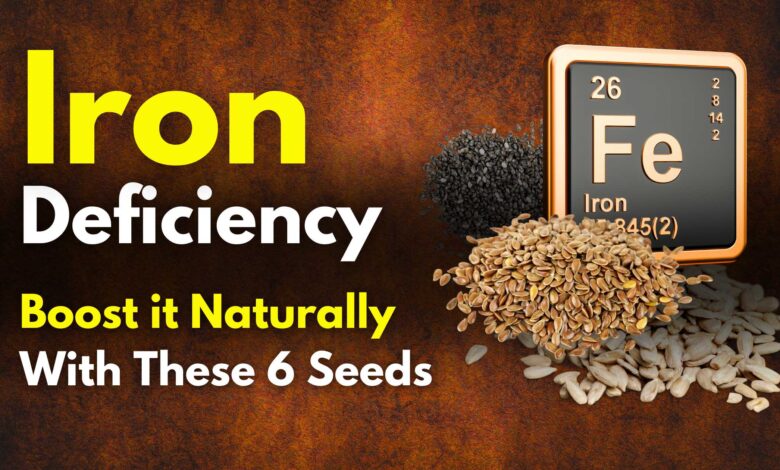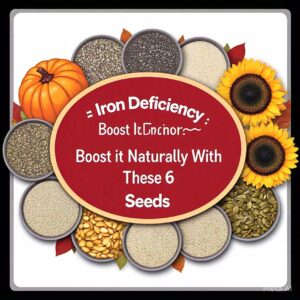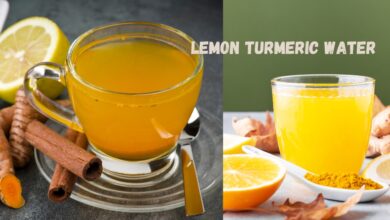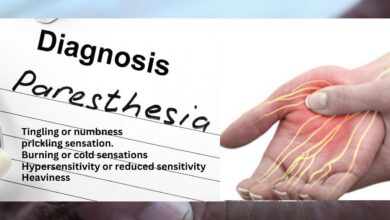

Iron deficiency is a major nutritional problem worldwide, especially among women and children. Low iron intake can lead to anemia, which can cause fatigue, weakness, and poor immune function. Although iron supplements are often prescribed, incorporating iron foods into your diet can provide a natural and sustainable way to combat iron deficiency.
In these foods, whole grains stand out as a source of nutrients for energy, providing a plant-based source of iron. This article looks at six seeds—pumpkin seeds, sesame seeds, sunflower seeds, chia seeds, flax seeds, and quinoa—and their potential to increase iron levels.
Table of Contents
1) Pumpkin Seeds:
Pumpkin seeds, also known as pumpkin seeds, are a nutrient-dense snack that is packed with important nutrients like iron. A quarter cup of pumpkin seeds provides 2.5 milligrams of iron, which is about 14 percent of the recommended daily intake. In addition, pumpkin seeds are rich in zinc, magnesium, and vitamin K, which further support health and well-being.
2) Sesame Seeds:
Small but powerful seeds contain iron and other important minerals. A tablespoon of sesame seeds contains 1.3 milligrams of iron, which is an important addition to the diet, especially for those with iron deficiency. Sesame seeds are also rich in calcium, magnesium, and phosphorus, which improve bone health and support important body functions.
3) Sunflower Seeds:
Sunflower seeds are not only delicious, but also rich in nutrients such as iron. A quarter cup of sunflower seeds provides 1.8 milligrams of iron, which is about 10 percent of the recommended daily intake. In addition, sunflower seeds are a good source of vitamin E, an antioxidant that helps protect cells from oxidative damage and supports the immune system.
4) Chia Seeds:
In recent years, chia seeds have become popular for their excellent nutritional properties, including their iron content. Just two tablespoons of chia seeds contain about 1.6 milligrams of iron, making them a great addition to a variety of dishes and recipes. In addition, chia seeds are rich in omega-3 fatty acids, fiber, and protein, which promote heart health, digestion, and satiety.
5) Flaxseeds:
Flax seeds are a popular dietary source because they are a rich source of omega-3 fatty acids, fiber and lignans. In addition, flax seeds are rich in iron, with two tablespoons providing 1.2 milligrams of iron. Including flax seeds in your diet can help increase iron levels while benefiting from heart-healthy and digestive-supportive fats.
6) Quinoa:
Although quinoa is not a grain but a pseudo-grain, it is included in this list because it is very nutritious, including iron. Quinoa is a complete protein that contains all nine amino acids, as well as iron, magnesium and fiber. One cup of cooked quinoa provides 2.8 milligrams of iron, making it a good source of this important mineral for vegetarians and vegans.
Also Read: Olive Oil: Top 10 Amazing Health Benefits
Conclusion:
In short, whole grains are an easy, nutrient-dense way to increase iron levels and fight iron deficiency. Pumpkin seeds, sesame seeds, sunflower seeds, chia seeds, flax seeds, and quinoa are excellent sources of iron and other nutrients that support health and well-being. By regularly including these grains in the diet, individuals can contribute to maintaining optimal iron levels and improve health and well-being.




